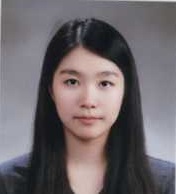
According to the United Nation’s report, more than 90% of conscientious objectors are South Korean. Who are conscientious objectors? Conscientious objectors are people who refuse to go to the military because of their religious belief or their convictions related to non-violence. When they refuse to go to military, they are sent to prisons on a charge of violating the duty of the military service. At least two reasons demonstrate why Koreans and the government should consider conscientious objectors’ rights and change or express their mind.
First of all, mandatory military services conflict with the Korean constitution clause, the freedom of rights. The Korean constitution includes both military services as a duty and freedom of religion as a right. What is more important is represented by recommendation from the Human Rights Council of the United Nations. It concluded that conscientious objections are based on rights of conscience and thought, and Korean government should release conscientious objectors.
Lastly, it hurts many people. Some really hate conscientious objectors and ignore them regarding them as religious fanatics or egoists. As you can see in the movie, it brings unbearable sadness to their families and friends. Some mothers get depressed because there is no alternative except for just watching them go to prison. Every time articles about alternatives to armed service surface in Korea, most of comments are negative and aggressively opposed. It hurts not only involved people but also disappoints positive people.
Some Koreans say men must go to the military for their nation and family’s security. They also stubbornly oppose alternative services under the name of equality. Why do some Koreans tolerate the situation that ignores young men’s rights but consistently stress unreasonable equality? Those statements ignore their rights, futures, and society’s tolerance. Therefore, the Korean government must guarantee conscientious objectors’ rights by releasing conscientious objectors from prison and enforcing alternative services.
Department of English Education
Noh Yun Ju

